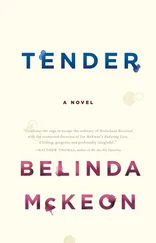In the grip of what felt so much like hatred, it was a kind of love.
When there was silence, and when it settled in the room among the rubble of their words, Mark stood and took his car keys from the counter. At the stairs, he listened to another type of silence, and then he made his way to the door.
‘Watch her,’ he said, without looking at his father. ‘I’ll be an hour.’
His father did not ask him where he was going. His father knew that he could not be seen to care.
Tom’s heart hammered in his chest as he listened to Mark drive away. He had said everything he had wanted, for so long, to say, yet his mind still whirled through new ways of saying it, through other ways of telling Mark how it was. He took the whiskey from the bottom cupboard, uncapped it, then screwed the cap on again. He had a headache, he realized. Whiskey was not what he needed. He filled a glass of water and looked for the painkillers.
Mark understood nothing. He understood nothing about the farm, and he understood nothing about what Tom had been through with it, and he understood least of all that Frankie Lynch had done them a favour by stepping in and buying the cattle. This was no longer a country to try to run a herd of animals in. Any fool could see that. The best thing to do was to get out now at the best price you could, and keep the head down for a while, and then, when the air calmed and the place settled into whatever it was going to settle into, to get back in at your own pace. It was what people were wishing they could do with their houses and their sites now, what Frankie Lynch’s brother, the builder, must have been wishing he could do with the field of houses he had built up at Glen. But those other people had not got in quickly enough, they had not heeded the signs, and heeding the signs was what you had to do.
Besides, he had wanted a change. It was not that he found the work of the farm demanding; he could manage it alone. He always had. That was part of what he had been able to make clear to Mark tonight, that he had always had to do everything alone, that even on the rare occasions when Mark was around, he was no real help, doing only the bare minimum and getting away again as soon as he could. Mark had disputed this, but it was indisputable: it was fact. He had no interest in the place. He looked down his nose at it all. And yet he thought of himself as having some claim to it, some right to tell Tom what he should and should not do with his own money, his own herd, his own land. He was a grabber, pure and simple, and it had been time for that truth to be told. It was not fully true what Tom had said about being happier to see the herd going to Frankie Lynch than to think of it falling to Mark, but it made little difference, Mark having so little interest, and he was glad that he had said what needed to be said about the laughing stock Mark was making of himself, and of Tom, with what he called work, with his excuse for a job; sitting all day in front of books and papers like a boy getting ready for his school exams. He had been in college now nearly longer than he had been in school, and with nothing to show for it; he spent his time thinking and reading and writing about the one part of the place’s history that nobody around the place gave a damn for. He was living, like a squatter, in a house that Frank Lynch had paid for, a house that belonged, now, not even to Mark, but to the child. And he was smothering the child, stopping her growing up the way she should. She could barely even talk, could barely mumble anything other than a few baby’s words. There had been more, and some of it had gone on to ground, maybe, that would have been better avoided, but still Tom was glad to have it said. It was better out. He was tired of carrying it around.
He had not found the work of the place too much; that was not what had happened. It was more that he had found that it had begun to matter to him less and less after the summer, as the months began to slide in towards winter. To take hay to the manger every evening seemed a nuisance; instead, he piled it with bigger loads twice or three times a week. If he did not change the straw bedding in the calf house, there were no consequences: the animals did not complain. He noticed damage to the fences he had put up over the summer in the lower fields, but he put off the work of fixing them, letting the bullocks and the cows mix freely, which was something he had never before allowed.
Late in September, he realized that one of the Friesian cows was missing. He was not sure how long she had been away from the rest of the herd; he had not checked on them in a couple of days. When he found her, she was lying in the shelter of a tree, and when he hunted her up, he saw that she was badly lame. He cursed at the sight of her, limping and straining; he should have spotted it in her earlier, should not have left her to suffer like that by herself. He saw, too, that she was run down: she looked thin and weary; her eyes were dull. He brought her up from the fields to the yard, talking to her as she made her slow way, telling her, more than once, that he was sorry not to have looked after her sooner. When Farrell came to inject her, Tom saw the way he looked around the place, at the tools left on the ground, at the gate fallen off its hinges, at the troughs more full of leaves and twigs than they were of water.
‘Where have you the rest of the cattle?’ he asked Tom, after he had finished with the Friesian.
‘The lower fields below,’ Tom said, as casually as he could.
‘I might as well have a look at them while I’m here,’ Farrell said, and he walked on to the gate before Tom could say anything to stop him.
‘They’re awful lean, Tom,’ he said, when he had looked at the herd.
‘That’s the breed of them, Mick.’
‘It can’t be the breed of all of them,’ Farrell said. ‘And there’s scour in them. They need dosing for fluke.’
‘Right enough,’ Tom said. ‘I’ll take care of that.’
Farrell looked to the road. He sighed. ‘Look, Tom,’ he said. ‘I’m coming to this place a long time, and I know you well and I knew poor Maura well, may God have mercy on her. You know well I’d never do anything to cause you trouble. But there’s people passing on that road every day mightn’t go so easy on you. These cattle are scrawny. There’s men getting reported for cruelty for far less. Do you know what I’m saying to you?’
‘Say no more,’ said Tom, and he pulled at the twine on the gate so that it fell open.
‘If you need any help with them, Tom,’ said Farrell, ‘anything at all. .’
‘I’m going to book them in for a test with you next week, Mick,’ Tom said. ‘I’ll be needing that done.’
‘Anything, Tom,’ Farrell said, and he walked up the lane to his van.
After Farrell had tested the cattle, Tom called the Leader and placed the ad. It went in the following Wednesday, and the house phone rang that afternoon. There was a moment of silence when Tom realized it was young Lynch who was calling about the herd, and when young Lynch realized it was Tom he was talking to, but it was money they were talking, and talk of money could only keep going, could only pick up where it left off.
Lynch took them away in five loads, and it was only when he was rounding up the last dozen, the heifers, that Tom noticed a Charolais heifer standing apart from the rest. When he walked over to tip her along he saw that her hips were down and her udder had filled. The heifer looked at him. He saw her sickness and her fear.
‘Ah, lassie,’ he said, and he patted her on the neck. Behind him, shouting, cracking his stick, Lynch was running the rest of the heifers into the trailer through the cattle pen.
Читать дальше












